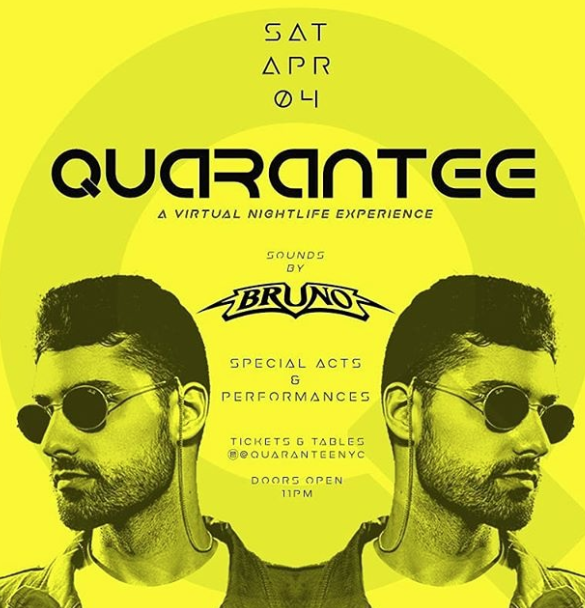Clubbing Under Quarantine: People Are Paying To Log On To Zoom And Attend Virtual Concerts And Raves
With actual clubs shut down, how are insecure ravers going to get their fix of attention, booze and music that sounds like pneumatic drills hooked up to amplifiers? Meet virtual nightlife.
Following in the lead of Asia during the outbreak, livestreaming has now made its way onto the club scene. U.S. musicians across all genres are logging on, instead of packing seats, to perform. And it isn't just the newfound acoustic singer-songwriter you went to high school with appearing on your Facebook timeline performing. Major DJs like Diplo and A-Trak have been performing, often times to raise money for Covid-19 relief.

The virus has hit the nightlife and the $27.9 billion live music industry hard. For many working musicians, performing online is a way for them to raise money. But it's not showing impressive results, according to Bloomberg. Artist and tech researcher Mat Dryhurst calls it "e-busking". “The tech isn’t there to make it more engaging than, say, radio. Even in this charitable climate, it isn’t producing impressive financial results.”
While smaller artists may only make $50 per stream, artists like Erykah Badu have had more success. She pulled in 10,000 viewers - at $1 per person - for a performance she did on March 23 from her home. She did a second one, charging $2, to help support her and her band.
And the spillover into dance music and rave culture was inevitable. At a Zoom party called Club Quarantee, guests buy tickets for $10 or can pay $80 for a private room to party with Instagram-famous DJs and burlesque dancers. Bloomberg said: "On a recent weekend, the party is full of European models and bearded men in fedoras, dancing along to Macarena."
Sounds like it's definitely worth $80.
Club Quarantee’s founder said: “A bottle-service club is a symbol of exclusivity and high-quality entertainment. Of course, we can’t sell bottles, but we try to deliver this vibe.”
A former NYC celebrity hang-out host, he says he has lost about $10,000 in income since the city has shut down. His first virtual party brought in about 300 people, covering half of his costs, which included talent, a videographer and staffers. On his second try, he broke even.
“The main objective is to create a space where promoters can maintain important relationships with our clients and keep them entertained during this time. People are longing for social interactions, and we can offer an important part of the club experience: the emotional connection," he said.
Then there's Club Q, a "safe space" for the LGBTQ community recently called the "hottest club on Zoom". It has 40,000 followers on Instagram. One of its founders said: “We have access to people who can’t attend clubs because they have children, social anxiety, disabilities, or live in places that don’t have clubs. We want to maintain this equality, with no elitism.”
And Club Q is starting to look into branding opportunities. Companies remain skittish in spending, however. “Without knowing how long the quarantine will be, brands don’t know if they should throw money and commit to this as something for the future,” co-founder Brad Allen said.
“There’s a learning process. At first, people were not willing to spend money on Netflix; they were used to streaming movies illegally. It takes a while to be accepted and for people to understand it’s not a scam,” Club Quarantee's founder concluded.
The digital parties being pitched look like this:
https://ift.tt/2yKtUTP
from ZeroHedge News https://ift.tt/2yKtUTP
via IFTTT





0 comments
Post a Comment